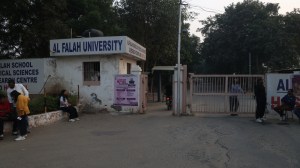Hopes and fears
Fear and foreboding lace the air as the nation steps into the last year of the old century and millennium. A moment that should ordinaril...

Fear and foreboding lace the air as the nation steps into the last year of the old century and millennium. A moment that should ordinarily have been rife with hope and optimism, is today mired in the ugliness of communal hatred. Gujarat smouldered under vicious communal violence, as people died in Hindu-Muslim clashes in Amod and the Christian community in Gujarat’s Dang district continued to face the worst forms of persecution, with their churches burnt and their people assaulted. Far away, in coastal Karnataka, it was the same old story, with communal violence leaving a trail of death and destruction at Suratkal on Wednesday and Thursday.
President K.R. Narayanan, as the country’s highest moral authority, cannot but be exercised by these developments because they represent the atrophy, through political misgovernance, of the age-old Indian tradition of tolerance and respect for other religious traditions. Narayanan was even constrained to alter his original New Year greetings to the nation and remindpeople of Swami Vivekananda’s resounding description of India as “the most wonderful land of toleration”. Vivekananda had informed the various eminences that had gathered in Chicago for the World Parliament of Religions in 1893, that he was “proud to belong to a religion which taught the world both tolerance and universal acceptance. We not only believe in universal toleration, but accept all religions as true”. Where is a leader representing Hindus in India today who is willing to speak with a voice half as loud as Swami Vivekananda’s? Will an Ashok Singhal or Giriraj Kishore have the courage to publicly claim that the values espoused by Vivekananda, modern day Hinduism’s tallest leader, are their own? Alas, only a resounding silence can follow such questions. For too long have these leaders traded on the currency of hatred and violence, to even bother about this important legacy of their religious tradition. In the process, they have only damaged themselves and their supposed cause.
The writing on thewall is clear. The two-member Central team that the Union Home ministry sent to Gujarat has strongly indicted the Hindu Jagran Manch, a part of the Sangh Parivar, for its signal role in the violence that the state continues to experience. This organisation is known to have close links with the Vishwa Hindu Parishad and the Bajrang Dal. Not surprisingly, according to Karnataka’s Home department, once again it is the VHP and the Bajrang Dal which are behind the recent clashes in that state as well. Both Prime Minister Vajpayee and his home minister, L.K. Advani, have expressed their categorical abhorrence of such behaviour by any organisation, even those within the Sangh Parivar. Vajpayee has also stated that there is no place for religious bigotry in the country and that his government was committed to maintaining communal peace. These stances have no value if they are not followed by the strongest action against the stormtroopers bent on destroying what Vivekananda discerned as the defining characteristic oftrue Hinduism: religious tolerance and amity.



- 01
- 02
- 03
- 04
- 05




























